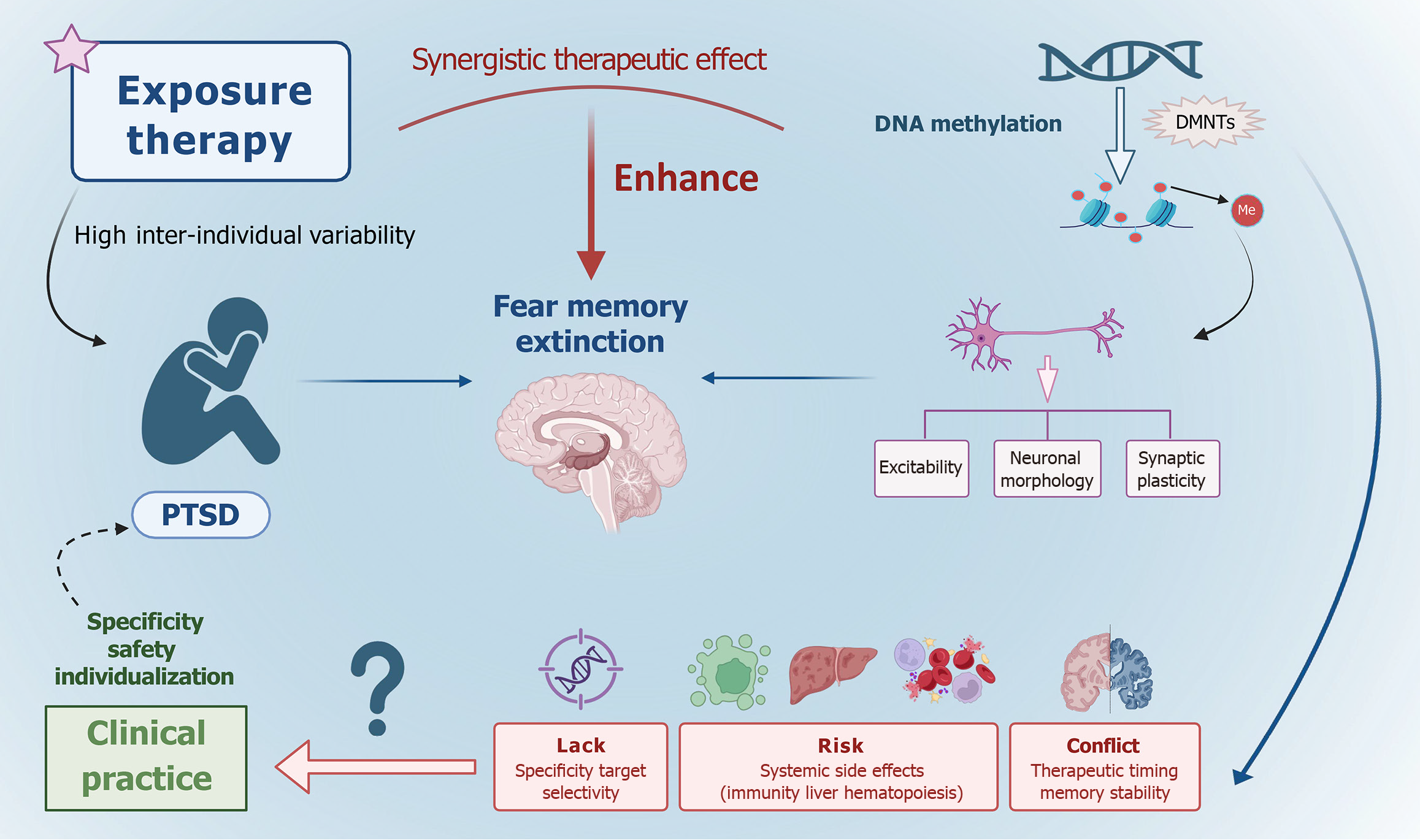©The Author(s) 2025.
World J Psychiatry. Nov 19, 2025; 15(11): 110581
Published online Nov 19, 2025. doi: 10.5498/wjp.v15.i11.110581
Published online Nov 19, 2025. doi: 10.5498/wjp.v15.i11.110581
Figure 1 Overview of the therapeutic potential and clinical challenges of DNA methylation enhancement in fear-related disorders.
Exposure therapy is a frontline psychotherapeutic approach for treating post-traumatic stress disorder; however, its efficacy varies significantly among individuals. DNA methylation, by regulating the expression of genes associated with memory and learning, offers a novel avenue to enhance therapeutic outcomes. Studies have demonstrated that enhancing DNA methylation in specific brain regions can facilitate the extinction of fear memories, highlighting its potential as both a biomarker and a therapeutic target. Region-specific regulation of methylation influences synaptic plasticity, neuronal morphology, and excitability, thereby promoting fear memory extinction. Nonetheless, the clinical application of DNA methylation-based interventions faces substantial challenges, including limited specificity and targetability, conflicts between treatment timing and memory stabilization, and the risk of systemic side effects. This paper underscores the importance of developing multi-faceted strategies to enhance the specificity, safety, and individualization of DNA methylation therapies. Future research should prioritize precise targeting, temporal modulation, and personalized risk assessment. Ethical feasibility must also be taken into account as this field advances toward clinical translation (Supplementary material). PTSD: Post-traumatic stress disorder; DNMTs: DNA methyltransferases.
- Citation: Huang XL, Chen DF, Wang Y, Zhang YN, Michael N, Ge YS, Wang B. DNA methylation as a new frontier in treating fear-related disorders: A need for careful evaluation. World J Psychiatry 2025; 15(11): 110581
- URL: https://www.wjgnet.com/2220-3206/full/v15/i11/110581.htm
- DOI: https://dx.doi.org/10.5498/wjp.v15.i11.110581













